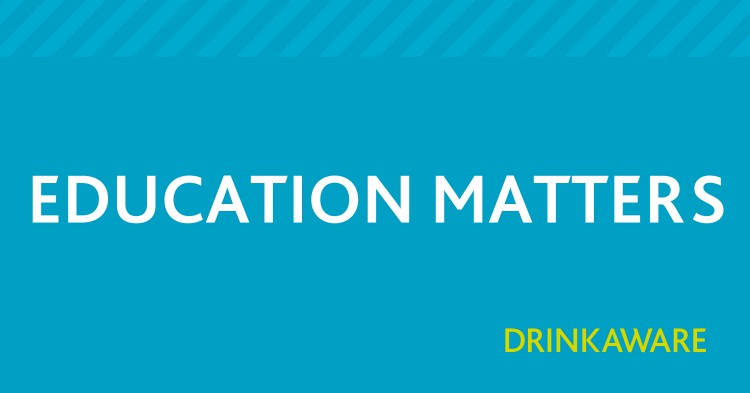Drinkaware, the national charity working to reduce alcohol misuse and delay the age of first drink has added two new module themes to the Junior Cycle Alcohol Education programme. The Drinkaware Junior Cycle Alcohol Education Programme (JC AEP), in line with best practice has been developed within the junior cycle curriculum and is delivered in schools through teachers who have attended training with Drinkaware. It is an eleven-week programme, which runs over the three years of the Junior Cycle, covering 1st year to 3rd year.
Independent Evaluation
The Drinkaware JC AEP has been independently evaluated by Maynooth University through a three-year longitudinal study. Key findings from the study which was led by Professor Sinéad McGilloway, Director of the Centre for Mental Health and Community Research, concluded that the programme delayed the intention and interest to drink amongst students from 30% in year 1, pre programme, to 54% in year 3. The study also found a significant increase in participating students’ knowledge of the impact of alcohol on overall health and wellbeing, from 22% pre-programme to 50% in 3rd year.
The study, which engaged teachers, parents, and students who had taken part in the JC AEP, determined amendments and additions to the programme including the two new lesson themes being announced and rolled out this year: ‘Influences’ and ‘Coping’.
The programme’s efficacy is centered around a holistic approach to alcohol education, hence the addition of current and emerging related subject topics such as these two new modules. Equally important is that the programme is informed by best practice and evidence.
The module on ‘Influences’ aims to help students to become critically aware of significant influences in their lives and how these might affect their behaviour and decisions around alcohol. The lessons included include addressing the impact of social media and messages around alcohol, marketing, and advertising.
The addition of the module on ‘Coping’ is particularly critical at this time. Adolescence is a time of opportunity but also a time of challenge and stress. Many changes take place in young people’s lives and the need to find and seek belonging is significant. The lessons on Coping centre on the behaviour and the skills required to manage stress during challenging times. By developing positive coping skills, young people are enabled to build resilience and self-management which are key life skills that contribute to wellbeing.
Education Manager for Drinkaware Martha Sweeney Commented:
“The programme has been developed from the perspective of the teacher as facilitator of learning, with the student at the centre, recognising the importance of the student voice in the classroom. The JCAEP is based on extensive research both before, during and after its development and is informed by evidence and best practice. It recognises the significant role of parents and the school community in the alcohol education of young people.
The Maynooth University longitudinal evaluation of the programme led to the addition of new module themes on influences and coping. These lessons are crucial and help students explore the critical influences in their lives, examining the impact of social media and messages around alcohol, marketing, and advertising with reference to underage drinking, staying safe and the role of alcohol. It also includes lessons on consent and staying safe. Coping involves the behaviour and skills to manage stress and challenging feelings during challenging times. Using alcohol to cope is particularly dangerous for young people because of short and long-term harm. These lessons deal with acceptance of difference and self-acceptance, supporting diversity and inclusion and coping with change.”
Over 15,000 students have taken part in the programme to date from over 160 schools across 25 counties in Ireland. The programme is only available to teachers who attend training with a background in SPHE/experiential learning. To date, over 300 teachers have attended training. The programme has been developed within the context of the Framework for Junior Cycle and is informed by the Social Personal and Health Education (SPHE) short course with a strong focus on Wellbeing. Key skills are promoted in each lesson, while indicators of wellbeing are a central aspect of home tasks. It is further supported by both parent and whole staff workshops. For more information on the programme emails can be sent to Martha Sweeney. martha@drinkaware.ie
Notes:
Maynooth University summary report can be accessed here.
Drinkaware Education Manager Martha Sweeney is a Mater Dei graduate and taught for many years in Post Primary education. She was seconded by the Department of Education (DES) 1994-1995 as a national trainer for Relationships and Sexuality Education and from 2000-2015 as Regional Manager with the SPHE Support Service/PDST and was also a facilitator for DES of the fifty-hour training course for teachers and principals on the Substance Abuse Prevention Programme (SAPP). More information on Martha Sweeney and her background in education can be accessed here.


